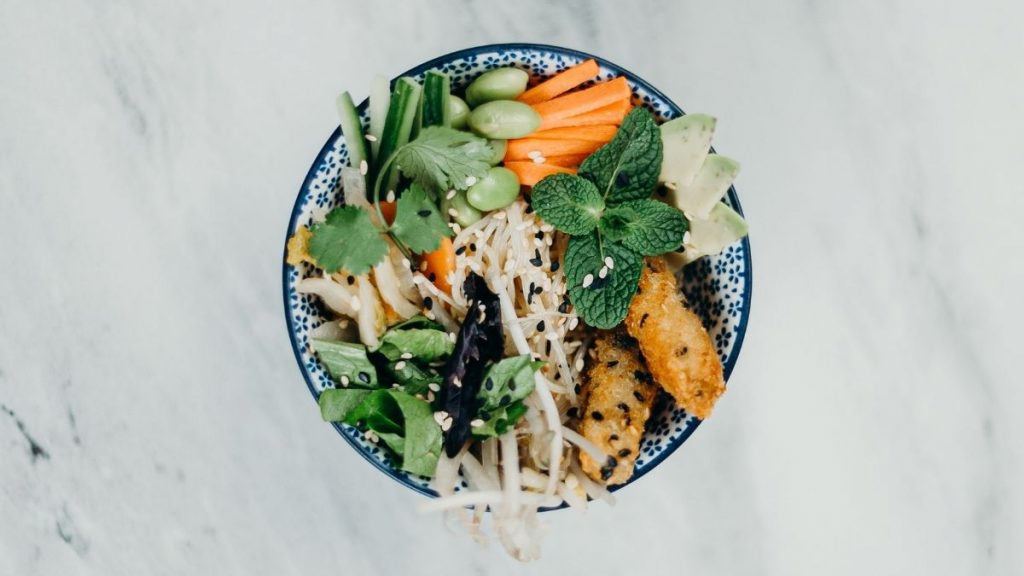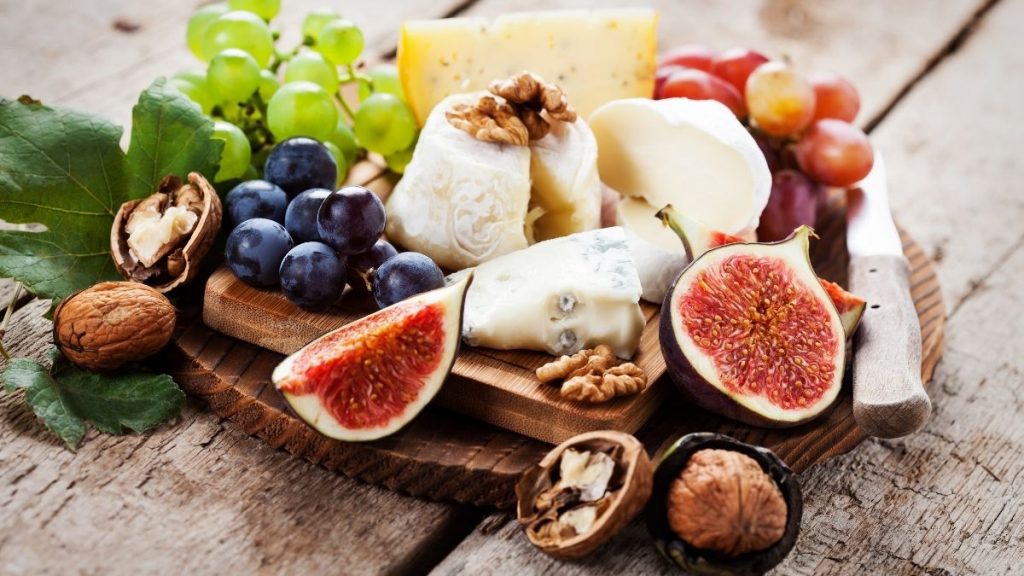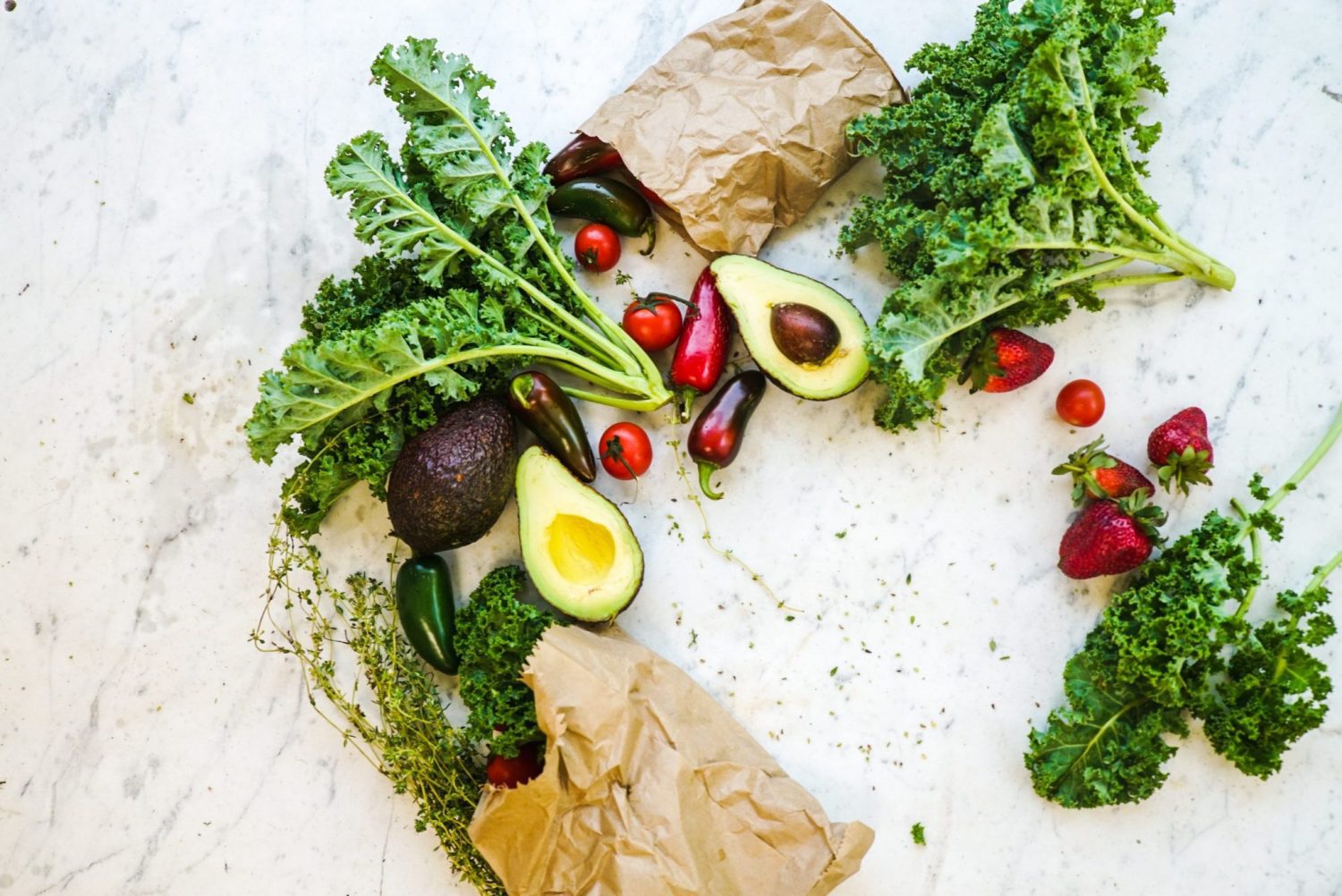
Eating fruit and vegetables helps us to stay healthy – that’s a well-known fact. We’re all familiar with the five-a-day concept and the importance of good nutrition. If you have a chronic condition like arthritis, it runs even deeper than this. Many vegetables are renowned for their anti-inflammatory properties, offering the potential to ease symptoms such as pain, stiffness and swelling.
In the UK, we’re lucky enough to have access to an abundance of fresh produce from all corners of the world. But with everything we could wish for at our fingertips, the ingredients grown on our own home soil can often be overlooked.
When you’re doing your weekly food shop, it’s always best to keep an eye on what is in season, from asparagus in the springtime through to brussels sprouts and curly kale in the winter. Generally speaking, locally-sourced, seasonal vegetables are more nutritious than imported produce and contain fewer chemicals. What’s more, by eating seasonally, you are effectively reducing your carbon footprint and supporting a sustainable food economy.
The benefits of an anti-inflammatory diet
Inflammation is the body’s way of protecting you from invasive bacteria and viruses. It’s like a defence mechanism. However, with some chronic illnesses, the immune system triggers inflammation when there are no invaders to fight off.
Scientific research suggests that eating certain foods – particularly those rich in a group of antioxidants known as polyphenols – can contribute to reducing body-wide inflammation, helping to soothe and even prevent painful flare-ups. Countless studies support the positive impact of an anti-inflammatory diet on managing rheumatoid arthritis (RA) symptoms.
Foods that cause inflammation include:
- High-sugar foods
- Refined carbohydrates such as white bread and pastries
- Red meats
- Processed foods
Foods with anti-inflammatory properties include:
- Fruits such as strawberries, raspberries, cherries, watermelon, avocado and grapes
- Fatty fish like salmon, tuna and mackerel
- Extra virgin olive oil
- Whole grains, nuts and seeds
- Herbs and spices including turmeric, ginger and oregano
- Vegetables such as spinach, kale and broccoli
Anti-inflammatory spring vegetables
There are plenty of delicious spring vegetables which can help to curb inflammation. Some of our favourites include spring greens, asparagus and purple sprouting broccoli. All are rich in antioxidants and are extremely versatile. Asparagus is a great source of nutrients, including folate, fiber and vitamins A, C and K, which is thought to improve digestion and lower blood pressure. Meanwhile, spring greens, which are part of the same family of vegetables as kale and cabbage, support everything from bone health through to sleep and mood.
If you’re looking for a quick, fresh lunch, why not try a mixed grain bowl using this BBC Good Food recipe. It features purple sprouting broccoli, a superfood packed with vitamins, minerals and bioactive compounds, as well as another renowned anti-inflammatory ingredient, salmon.
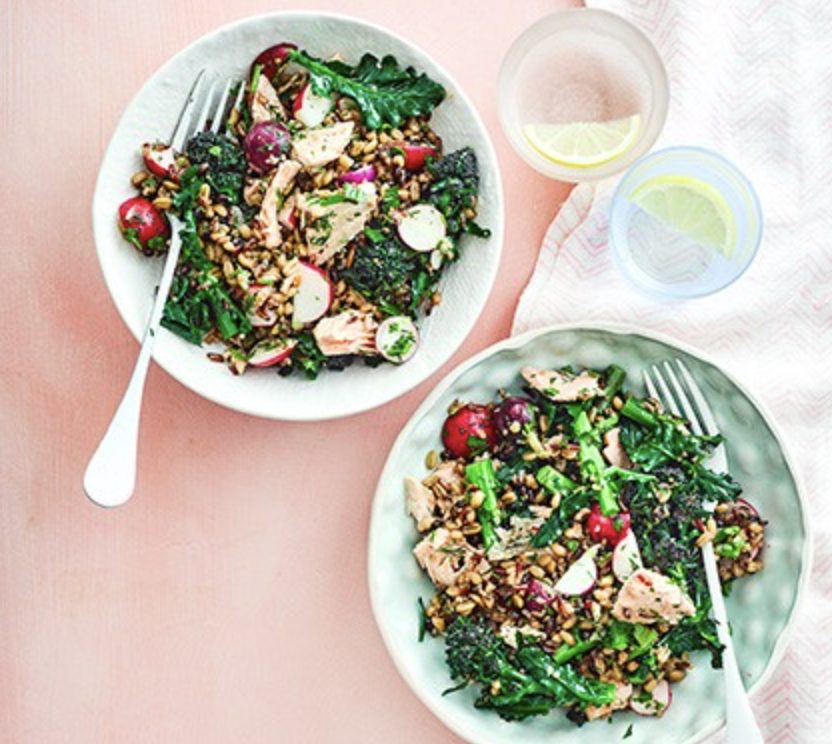
Recipe: Salmon and purple sprouting broccoli grain bowl
Ingredients for two servings:
- 2 1/2 tbsp cold-pressed rapeseed oil
- 1/2 tsp honey
- 1/2 tsp wholegrain mustard
- 1 lemon (juiced)
- 200g purple sprouting broccoli (each stem cut into three pieces)
- 1-2 garlic cloves (sliced)
- 250g pouch mixed grains
- Handful parsley (chopped)
- Handful dill (chopped)
- 160g radishes (cut into chunks)
- 200g cooked salmon (broken into chunks)
Method:
- Mix 2 tbsp oil with the honey, mustard, lemon juice and some seasoning.
- Bring a pan of water to the boil, add the broccoli and cook for 3-4 minutes until tender but with a slight bite, then drain. Alternatively, steam the broccoli.
- Heat the remaining oil in a frying pan. Add the garlic, followed by the mixed grain pouch, broccoli, mustard dressing, herbs and radishes. Mix to combine, season to taste and gently stir through the salmon.
Anti-inflammatory summer vegetables
If you love fresh, vibrant salads, you’ll be pleased to know that lettuce is another anti-inflammatory vegetable, and it’s in season from May to September. Other healthy options include garlic, sweetheart cabbage and red, earthy beetroot, which contains anti-inflammatory compounds called betalains. One particular study looked at the effectiveness of beet concentrate on reducing pain and discomfort associated with joint conditions, and the results were positive. Can we tempt you with Tesco Real Food’s beetroot and mackerel salad recipe?
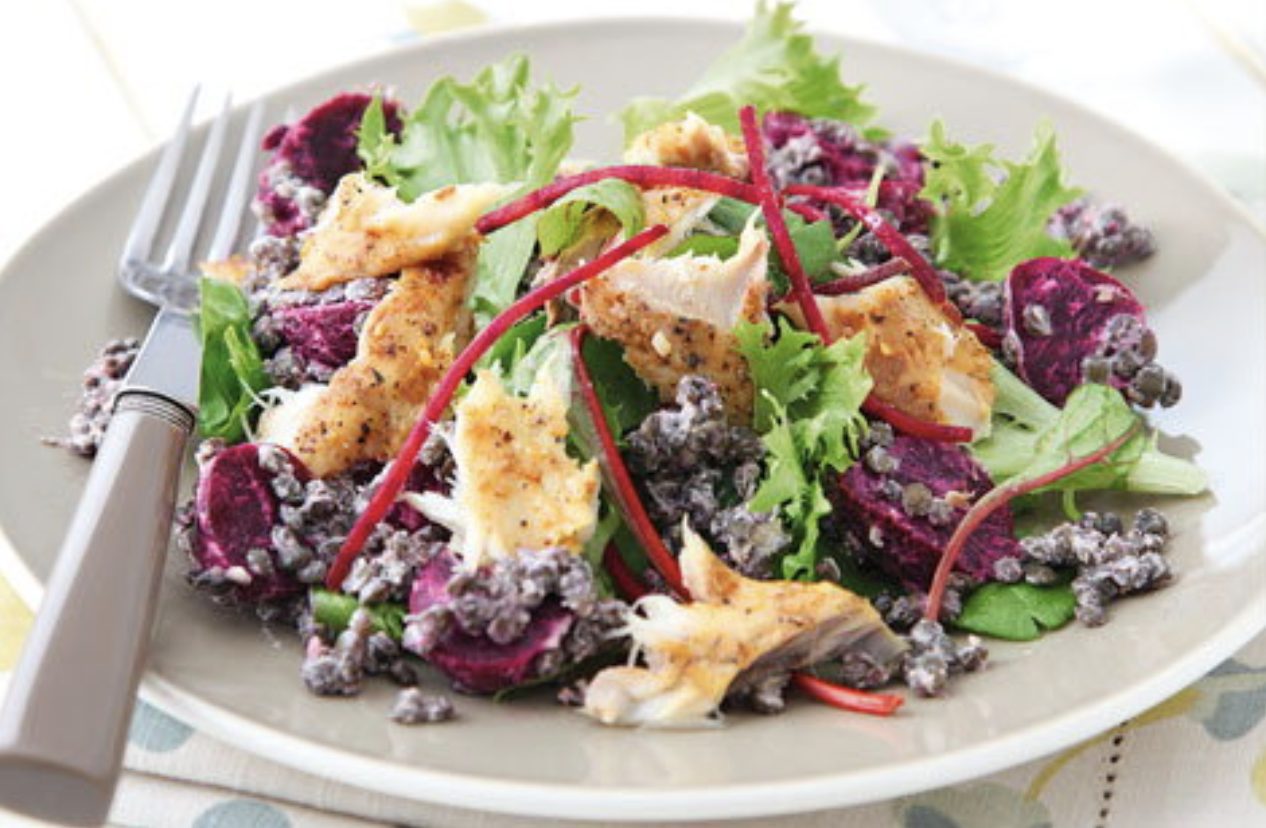
Recipe: Beetroot and mackerel salad
Ingredients for two servings:
- 1 tbsp horseradish sauce
- 1 tbsp low-fat crème fraîche
- 6 tbsp cooked green, puy or brown lentils
- 6 baby beetroots
- 200g beetroot salad leaves or mixed salad leaves
- 1 pack crushed peppercorn smoked mackerel fillets (skin removed and flaked into pieces)
Method:
- Put the horseradish sauce, crème fraîche, lentils and beetroot into a bowl and gently toss them together.
- Arrange the salad leaves on two plates and spoon some of the beetroot mixture over each.
- Scatter over the flaked mackerel and serve.
Anti-inflammatory autumn vegetables
As the days grow shorter and the trees shed their leaves, the UK-grown vegetables available transform. Mushrooms are a great form of autumnal produce. In fact, they’re the top plant source of vitamin D, which is vital to keep our bones and muscles healthy. Cauliflower, which is high in fibre and B vitamins, and leafy green powerhouse spinach are also excellent choices.
Sag paneer is a classic Indian dish that’s sure to tickle your tastebuds. Spinach, one of the best known anti-inflammatory foods, is centre stage, and the Sainsbury’s magazine recipe also features garlic, ginger and turmeric. Enjoy it as a main with a chapati or as a veggie side to your favourite curry.
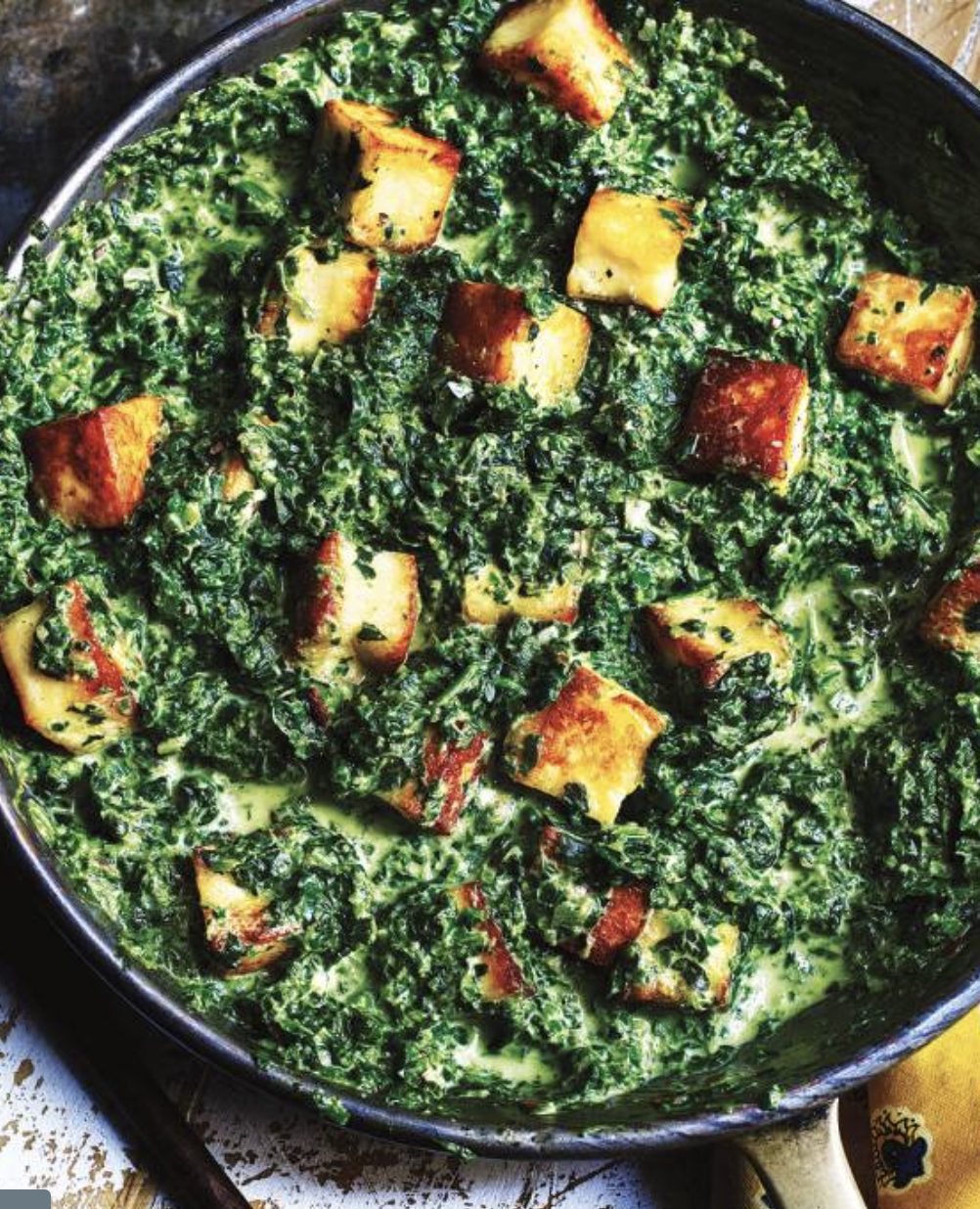
Recipe: Saag paneer
Ingredients for four servings:
- 250g pack paneer (cut into 2cm cubes)
- 5 tbsp rapeseed oil
- 450g fresh spinach (or frozen)
- 1 tsp cumin seeds
- 1/2 tsp hot chilli powder
- 1 tsp ground turmeric
- 4 fat garlic cloves (finely chopped)
- 2 tbsp natural yoghurt
- Juice of 1/2 lemon
Method:
- Make a few holes in each paneer cube using a fork and then mix with the marinade ingredients (1/2 tsp ground turmeric, 1/2 tsp chilli powder, 1/2 tsp fine sea salt). Leave overnight, if possible.
- Fry the paneer using 3 tbsp oil in a large pan until golden, then remove and set aside.
- Heat the remaining oil in a frying pan and add the cumin seeds, stirring for 30 seconds. Add the chilli powder and turmeric and stir in the garlic and fry until golden brown.
- Add the spinach to the frying pan and stir in the yogurt, 1 tbsp at a time. Stir in the fried paneer and heat through.
- Season to taste with salt and lemon juice and serve.
Anti-inflammatory winter vegetables
During the winter months, you may benefit from incorporating seasonal vegetables like cabbage, brussels sprouts and curly kale into your diet. These collard greens are an excellent source of vitamins A, C, K and B-6, as well as calcium, iron and magnesium.
Brussels (love them or hate them) are a great food to fight inflammation, and they can be enjoyed in a variety of ways – not just as a Sunday roast accompaniment. This one-pan dish recipe from Delicious magazine takes the ordinary and elevates it to an exciting new level.
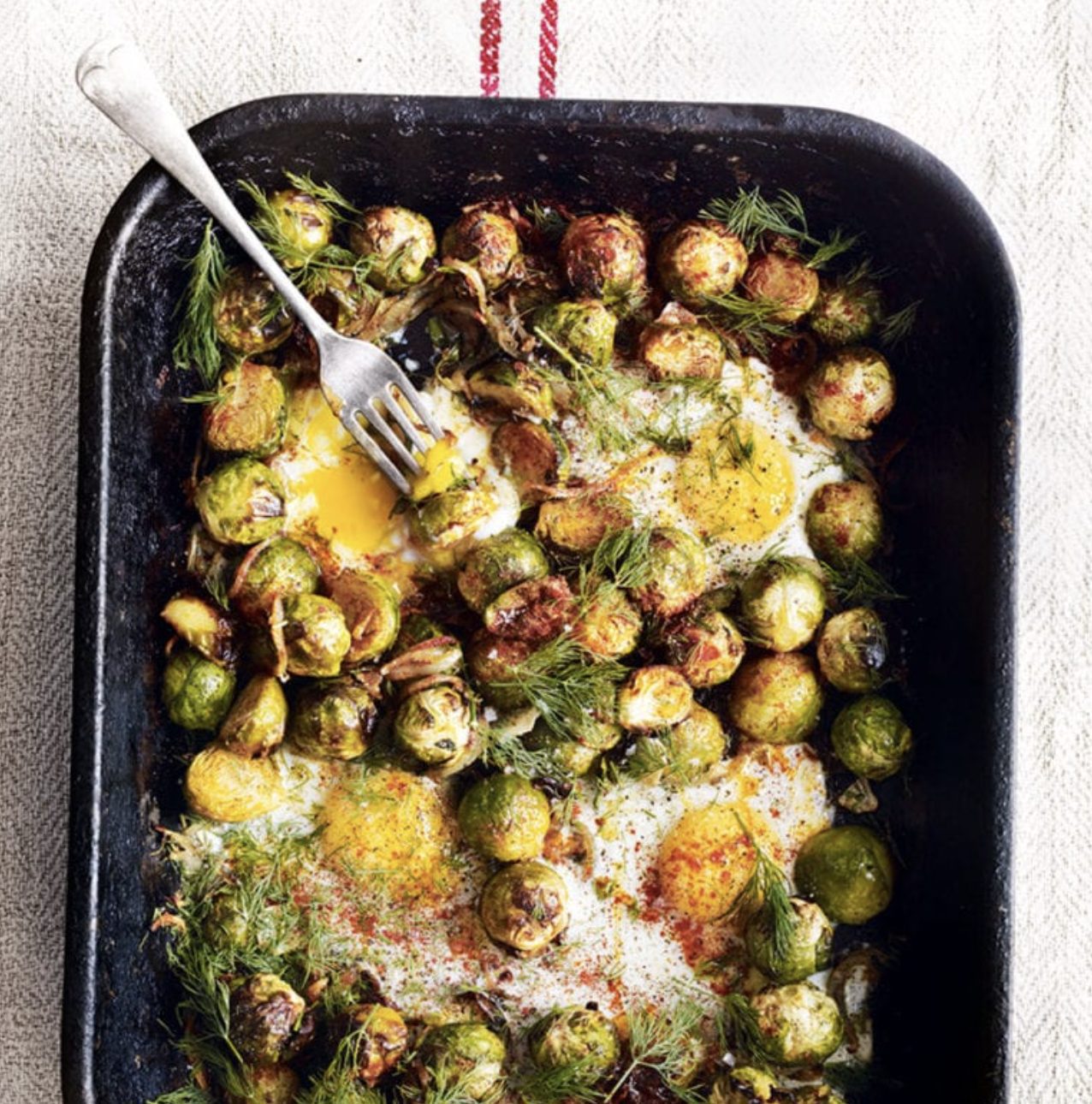
Recipe: Roast Brussels sprouts with caramelised onions and baked eggs
Ingredients for 4 servings:
- 2 medium onion (finely sliced)
- 2 tbsp olive oil
- Pinch caster sugar
- 500g brussels sprouts (trimmed and halved if large)
- 4 garlic cloves (finely sliced)
- 2 fresh rosemary sprigs (leaves stripped)
- 2 fresh thyme sprigs (leaves stripped)
- 1 tsp fennel seeds (lightly crushed in a pestle and mortar)
- 2 tbsp sweet smoked paprika
- Knob of butter
- 4 large free-range eggs
- Bunch fresh dill (finely chopped)
- Buttered sourdough toast to serve
Method:
- Heat the oven to 210°C/190°C fan/gas 6½. Put the onions in a large roasting tin, then toss with a drizzle of olive oil and a generous pinch each of sugar and salt. Roast for 10-15 minutes until the onions start to soften.
- Scatter the sprouts over the onions in the tin, then mix in the garlic, rosemary, thyme, fennel seeds, smoked paprika and another drizzle of olive oil. Season with black pepper, then return to the oven for 20 minutes, turning occasionally until the sprouts are tender and turning golden.
- Remove the sprout tin from the oven, then stir in the butter. Use a spatula to make 4 rough wells in the sprouts and onions, then crack in the eggs. Return to the oven for 6-8 minutes, until the eggs are just cooked to your liking.
- Remove the tray from the oven, scatter over the chopped dill and a pinch more of the smoked paprika, give everything a final seasoning of salt and pepper and serve with buttered sourdough toast.
Whether you’re contemplating eating seasonally to lower your carbon footprint or just want to make a few small changes to your eating habits, there are a variety of delicious anti-inflammatory ingredients available, including fresh vegetables to help with arthritis. It’s important to remember that there’s no one-size-fits-all approach, so explore your options and find what works best for you.
What are your thoughts on the subject? Do you have some anti-inflammatory recipes featuring seasonal vegetables you’d like to share? Head over to our Facebook community page Together For Better Days, a platform featuring holistic health tips for people living with chronic pain, as well as those supporting them.


